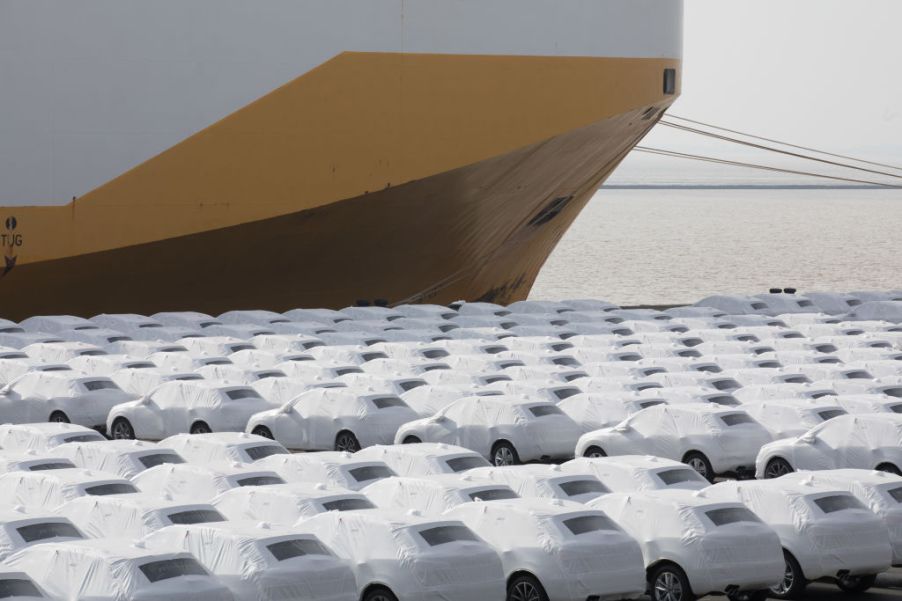
Germany Is Headed Toward Recession Due To Tesla
In Germany, the auto industry is looking at Tesla as an existential threat. And rightly so. It won’t be long–maybe even this year, when Tesla will outsell both Mercedes and BMW combined in the US. Arguably the two most prestigious brands in the US getting outplayed by an American electric vehicle manufacturer that doesn’t have a single SUV or pickup truck in its lineup. While all German manufacturers scramble to have something for the electric customer Tesla keeps gaining market share. The German economy is headed toward a recession and it’s mostly due to Tesla.
Another offshoot of this change in consumer demand is that Tesla is doing this only with cars; no SUVs or trucks. So much for Ford and GM killing off their car lines. That’s what we keep hearing in the US, “Nobody is buying cars anymore.” But they are. In the luxury market, they are buying Tesla sedans, and in the economy and midsize sedan arena, it’s Toyota that keeps on selling sedans. It’s not that sedans don’t sell, it’s that buyers are choosing some and not others.
Germany recession is due to consumer expectations set by Tesla

So if you’re Ford or GM the question should be, “Why are sedans selling, just not OUR sedans?” Or put another way, “How can we make a great sedan that sells well?” Somewhere in the mix of sedans, the keys are a combination of style, price, economy, resale, quality, choice, and more that keeps the American public going to Tesla and Toyota rather than Ford and GM. What’s the secret sauce for success?
But back to Germany and its woes, a German engineer said it best. “Your ambitions for electric vehicles are falling short of consumer expectations. Those expectations have been set from your strongest competitor today and in the future; Tesla.”
While Tesla sales rise the German auto industry saw zero growth

As German teeters on a recession, the auto industry there showed zero growth in Q4 2019. Chief economists peg it onto auto-export manufacturing. People outside of German are not buying their products. Reuters compares it to 1970s Detroit when tanking sales left the city in ruins. It has yet to bounce back 50 years later.
Slumping 22% in 2019 major cuts have been announced from all of the largest manufacturers in Europe. We’re talking about BMW, Volkswagen, Mercedes, Michelin, Bosch, and Continental. Bosch CEO Volkmar Denner said, “It could well be that we have passed the peak of automotive production.”
Germany is headed for huge layoffs as EVs take less workforce

Tesla is outselling all German car manufacturers. As the Germans scramble to compete it raises a troubling concern; electric vehicles take a much smaller workforce to build. Moving forward German auto manufacturers won’t be employing a workforce at the same levels it once did. It’s inevitable huge layoffs will happen as the conversion to electrification increases.
In China, the world’s largest car market, German car sales have declined for 18 months straight. The “Tesla effect” is being felt worldwide. Consumers want an energy sustainable vehicle. That big S-Series Mercedes sedan isn’t it. In fact, it represents the opposite.
“German automakers don’t have a single car that can compete with Tesla”

Another German engineer was heard to say, “It is time to face the uncomfortable truth that the German automakers do not have a single car, be it a gas/diesel car or an electric car, in production or in development today that can compete with the Model 3 Tesla.” That’s a bit harsh, but not far from the truth.
Everyone is keeping their eyes on the German economy to see how the Tesla effect impacts it and what Germany and its auto industry do to keep up.



